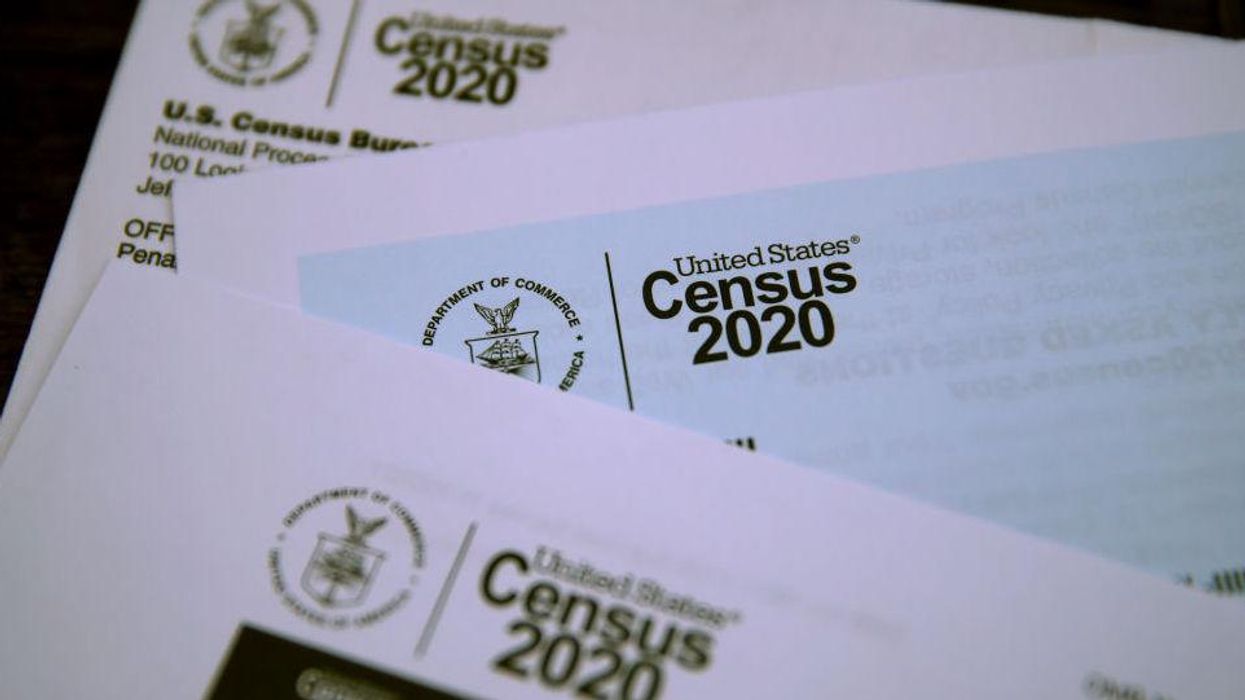
Justin Sullivan/Getty Images

A new report from the Census Bureau shows that errors in the 2020 Census may have helped some Democrat-controlled states while hurting some Republican-controlled states.
Last month, the Census Bureau released a report showing the populations of 14 states were miscounted in a statistically significant way.
The over-counted states include Hawaii (+6.8%), Delaware (+5.5%), Rhode Island (+5.1%), Minnesota (+3.8%), New York (+3.4%), Utah (+2.6%), Massachusetts (+2.2%), and Ohio (+1.5%). The under-counted states include Arkansas (-5%), Tennessee (-4.8%), Mississippi (-4.1%), Florida (-3.5%), Illinois (-2%), and Texas (-1.9%).
What that means, for example, is that Texas was under-counted by approximately 570,000 people, while New York was over-counted by about 695,000 people.
The report, which found no statistically significant errors in the 2010 Census, blamed the errors on "challenges" including the COVID-19 pandemic and the citizenship question that former President Donald Trump fought to include in the census questionnaire. The controversial question did not appear on the 2020 Census.
Gathering accurate census data is important for two reasons. First, census data is used for the disbursement of federal funds. Second, census data is used for congressional apportionment. Inaccurate data, therefore, could prevent states from receiving the appropriate number of congressional representatives.
In the case of the 2020 census, seven states lost one seat in Congress: California, New York, Illinois, Michigan, Ohio, Pennsylvania, and West Virginia. On the other hand, five states gained one seat: Colorado, Florida, Montana, North Carolina, and Oregon. Texas was the only state to gain two seats.
However, losses for blue states and gains for red states could have been bigger had the results been more accurate.
"The inaccuracies may have cost Florida and Texas an additional House seat and given Rhode Island and Minnesota one they shouldn’t have received. New York might have also lost another House seat if the Census were more accurate," the Wall Street Journal editorial board explained.
The Journal also explained how the inaccuracies arose, in part:
This week’s report notes that over-counts were partly due to people or census workers filling out duplicate surveys. For households that didn’t respond to the survey, bureaucrats inputed how many people live at an address using other government data such as welfare benefits or literally their best hunch. Surprise—they often guessed wrong.
Unfortunately, the census blunders cannot be fixed in time for the midterm elections or 2024 presidential election. The Supreme Court already settled that issue more than 20 years ago.
Writing at The Hill, Kristin Tate importantly noted that the "serious errors" could pay a play a role in future elections under certain circumstances.
"Given the nature of the mistakes, Democrats could hang onto the presidency under particularly controversial circumstances due to publicly-acknowledged errors," Tate wrote.
"The consequences of the Census Bureau’s errors will further erode the public’s trust in our electoral system. And if we thought 2000 or 2020 were contentious elections, just wait until a candidate realizes that he or she could have won the White House if the national headcount were done correctly," Tate observed.